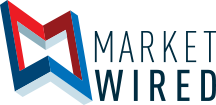INVNT/IP Flash Report: Stolen Steel
PRC Steel and Aluminum Strategy A Long-term Play for Global Domination
For nearly a decade now, INVNT/IP has tracked the ongoing economic campaigns run by the government of the People’s Republic of China (PRC) to dominate key global industries. From renewable technologies like photovoltaic cells and wind turbines to semiconductors, telecommunications, chemicals and beyond, the government of the PRC has pursued a system of global market domination that follows a distinct path. PRC government entities and their affiliates consistently follow three simple steps in the process of achieving unlawful domination of global markets deemed high national priorities by the leadership of China and the Communist Party of China (CPC): steal, amplify and dominate.
A simple but effective procedure, this system requires that the PRC government first promote or execute the theft of intellectual property from entities across the Western world, providing Chinese government and government-supported firms with the knowledge required to produce high tech goods without performing the necessary research and development. Once technical know-how has been stolen (or coerced through forced disclosure policies), government-affiliated firms are given funding and legal protection to “incubate” in the Chinese market.
Chosen by the government and carefully protected until they are able to compete internationally, these firms and their products are then introduced into the global market with extreme levels of government financial support. As a result, they are able to sustain below-profit sales at the government’s behest long enough to weaken and destroy their competitors. This domination of global markets is, of course, the point of the effort and expenditure employed in the preceding steps.
Few industries offer a better case study for this process than global steel and aluminum markets.
In 2016, Chinese hackers working for the People’s Liberation Army were indicted for hacking U.S. Steel, Westinghouse, Allegheny Technologies Inc., Alcoa, and the United Steelworkers Union (Solarworld was also a victim). The team obtained cutting edge manufacturing processes and advanced formulas, planning and strategy documents, and passed them to at least three major PRC government-owned firms: Baosteel, Chinalco and SNPTC. These firms, armed with massive PRC government subsidies (illegal by WTO standards), proceeded to sell these products on the global markets at far below the market rate.
In 2017, the United States Department of Commerce estimated subsidy rates of between 63.86 and 190.71 percent on products from a slough of Chinese companies in the metals business in its final determinations on antidumping and countervailing duty investigations of stainless steel sheet and strip from the PRC. Dumping margins from 48.64 to 106.09 percent were determined for aluminum products.
The continuous dumping of steel and aluminum products on the global market have had their effect. The hacks, which spanned from 2006 to 2014, allowed the PRC government to take massive global market share in these key industries. According to the USGS, the PRC produced roughly 27.4% of global primary aluminum in 2006, a number which had roughly doubled to 56.5% of global production by 2017. In 2006, China held 33.6% of the global crude steel market, while by 2016 that number had increased to 49.6%. While finished steel products are highly diverse, output in the PRC has increased vastly in a number of categories since 2006 (in some categories more than doubling) while other major producers worldwide have been stagnant or in decline. According to the US Department of Commerce there were 102 trade remedies in effect against China around the world by March of 2017, while DBS reports that public gross profit numbers averaged -1.4% in China for a list of 24 major steel producers in 2015.
Evan Anderson, CEO of INVNT/IP, said “Steel and aluminum are, without a doubt, two of the most important industries to any industrial power. Without domestic industrial capabilities in these industries, a nation cannot build infrastructure. Without them, a nation has no military.”
While criticism of the consideration of such metals as key to national security is common, Anderson added “I often see trade officials today complaining that these metals shouldn’t be part of any national security considerations, which worries me. We at INVNT/IP believe the inverse: every nation in the G7 should be focused on these metals as critical to national security, and none should be denied the right to secure and preserve their own domestic sources, particularly in the face of hostile attempts to dominate these industries.”
Aluminum and steel both play a critical role in the supply chains of high tech hardware, electric grid, agricultural equipment, aerospace, rail and automotive industries, and military branches across the board. As such, they are key to the national interest of any industrial economy. In the face of the ongoing campaign to destroy production capabilities everywhere outside the PRC, nations who follow international trade norms should act to protect themselves through continued, collective, and collaborative trade action.

 The SNS INVNT/IP Global Consortium’s Code-named “Operation BedBug” has Just Uncovered a Massive Spree of Acquisitions in the Hospitality Industry by the Chinese Government and Its Affiliates, Sparking Major Security Concerns for Global Business Leaders and Government Officials
The SNS INVNT/IP Global Consortium’s Code-named “Operation BedBug” has Just Uncovered a Massive Spree of Acquisitions in the Hospitality Industry by the Chinese Government and Its Affiliates, Sparking Major Security Concerns for Global Business Leaders and Government Officials An interactive map of potentially compromised hotel locations can be found at the INVNT/IP website, detailing brand names and management, and showing political connections to Chinese government families.
An interactive map of potentially compromised hotel locations can be found at the INVNT/IP website, detailing brand names and management, and showing political connections to Chinese government families.